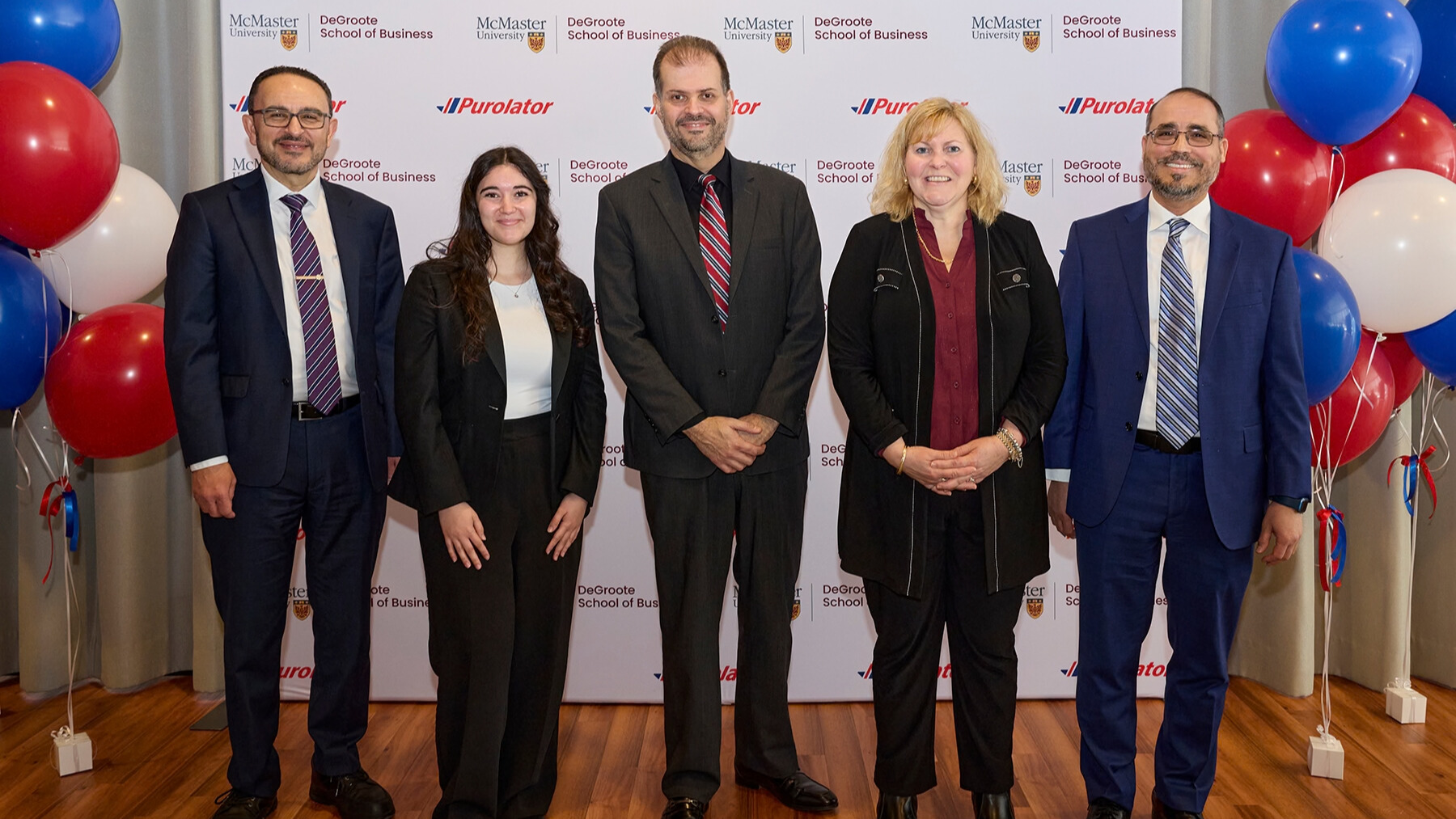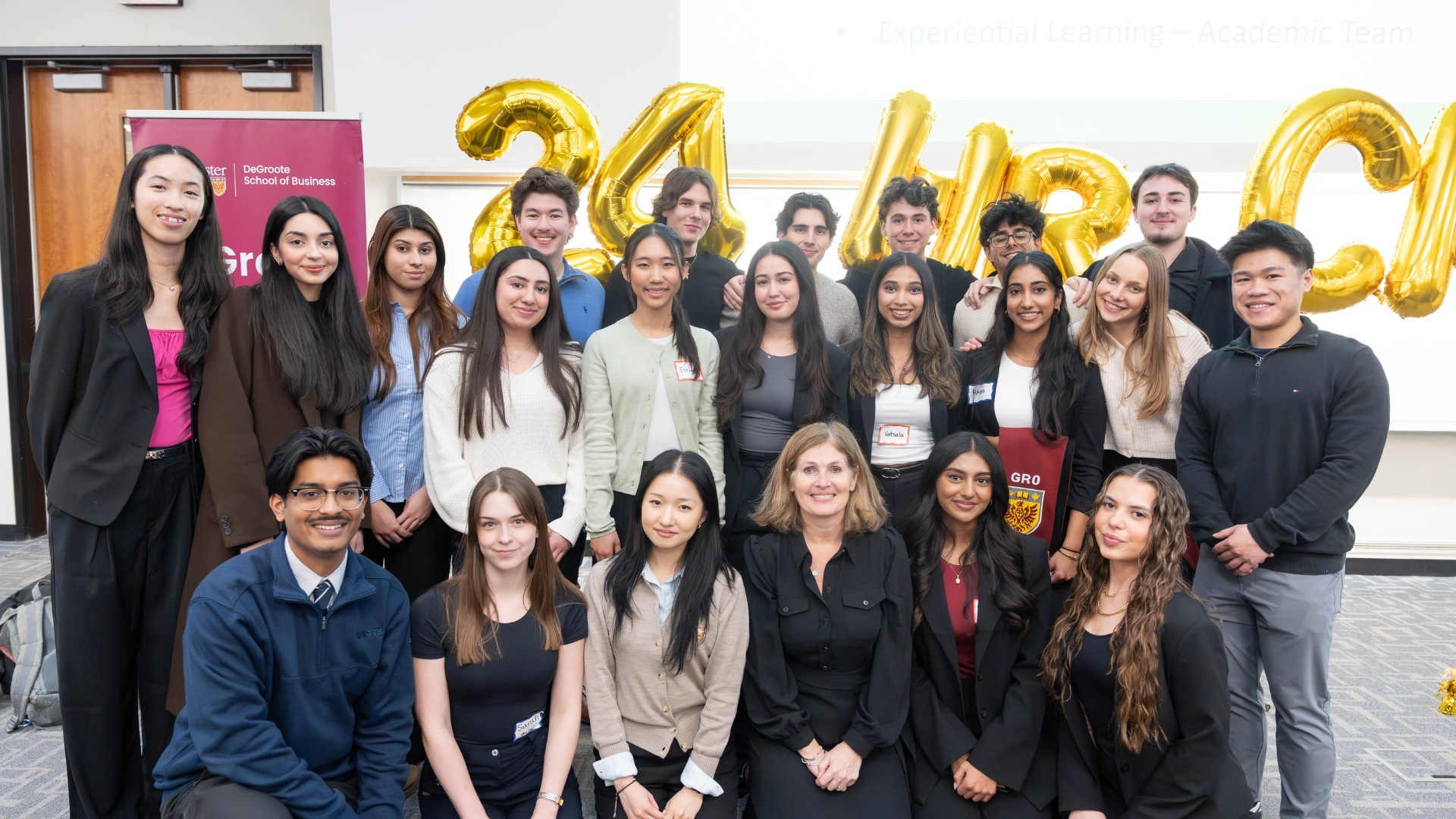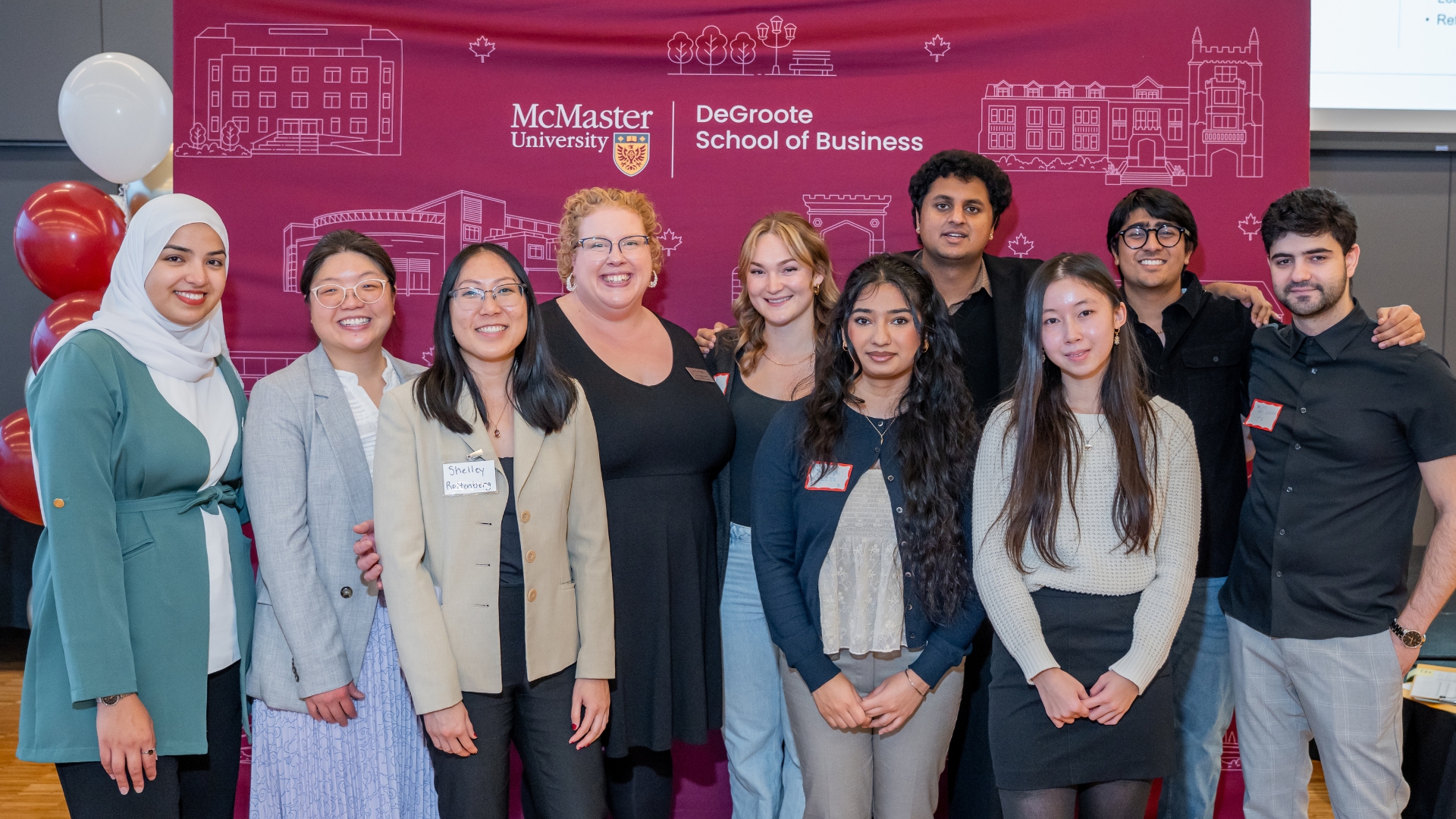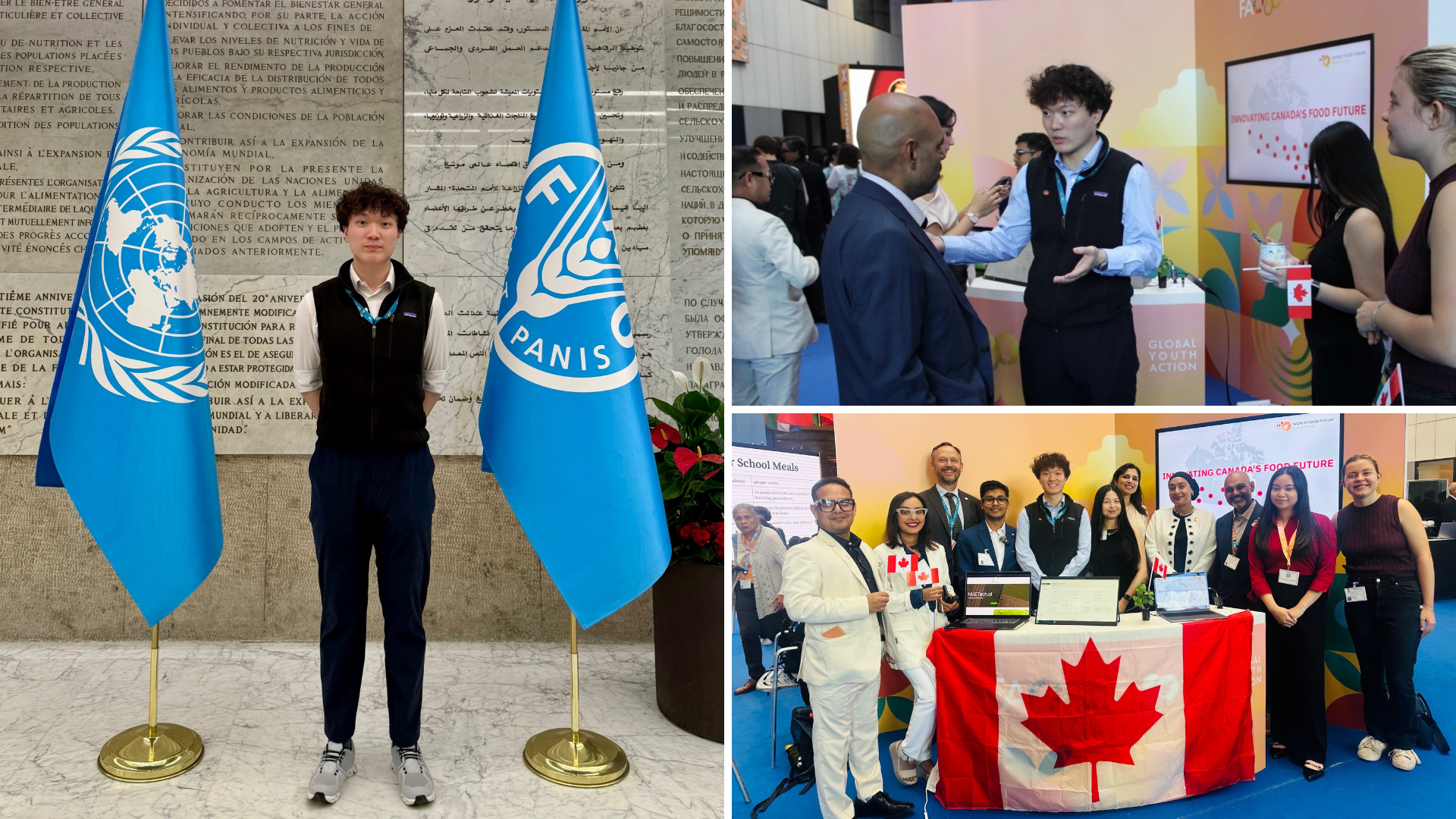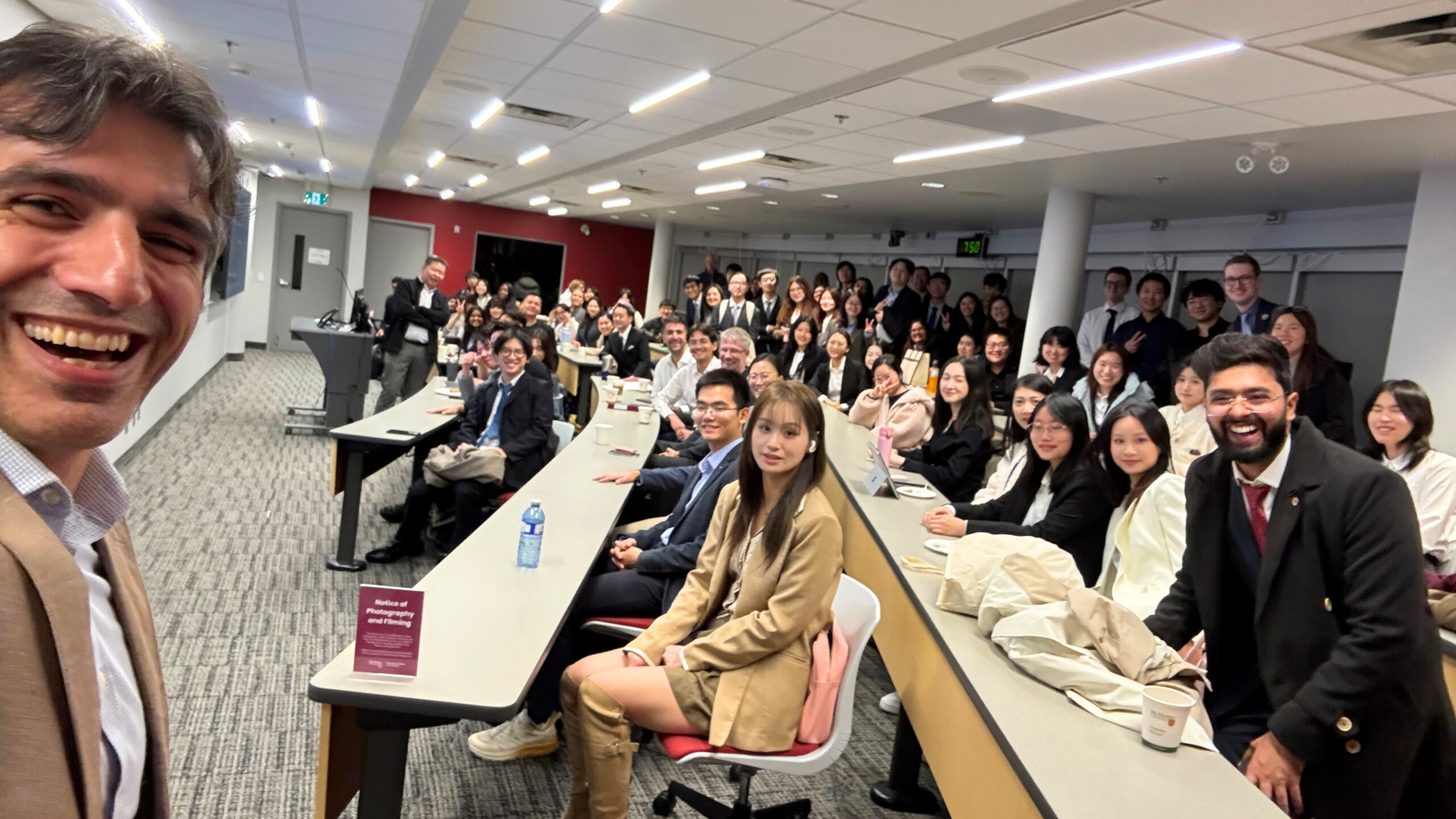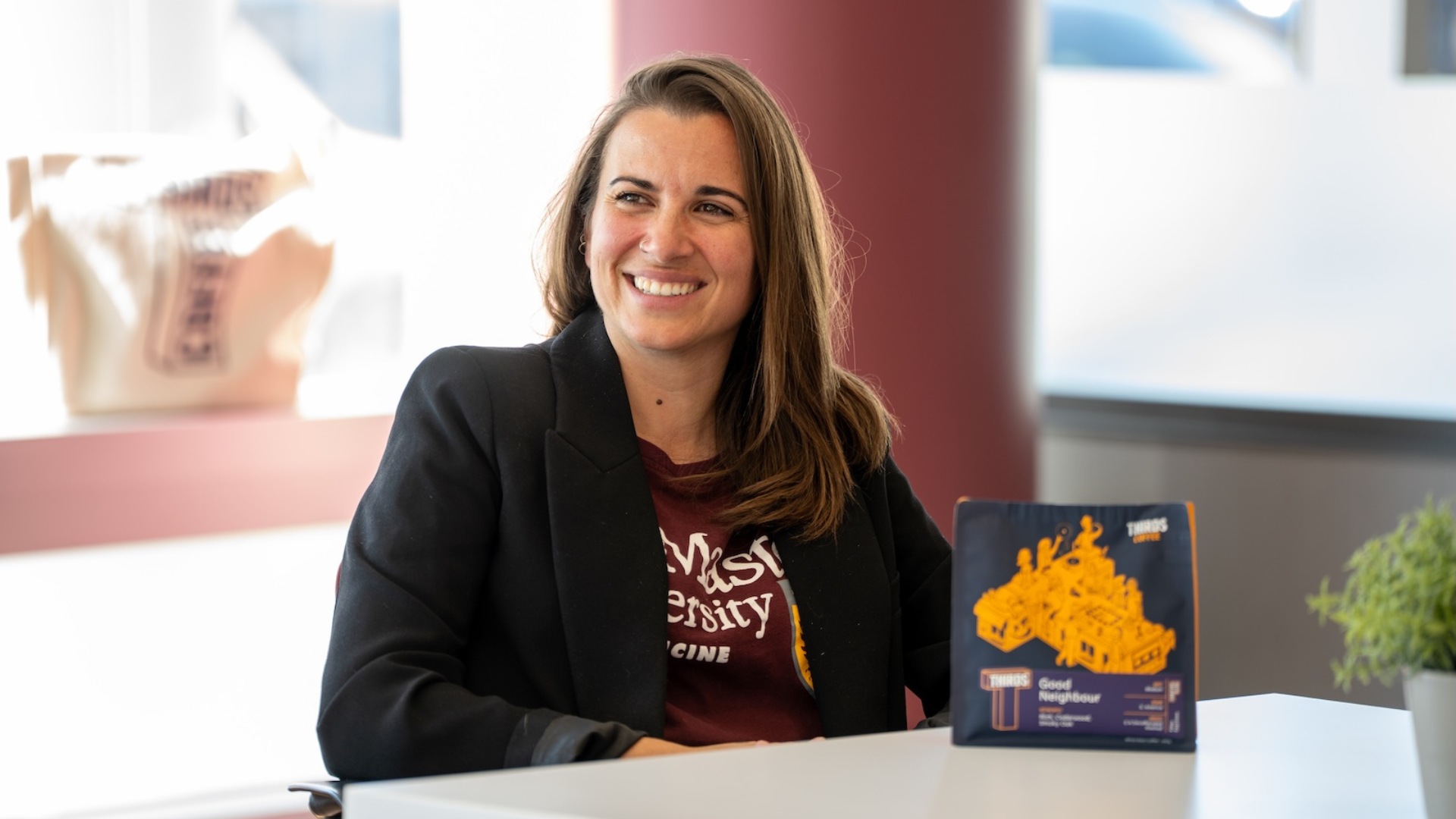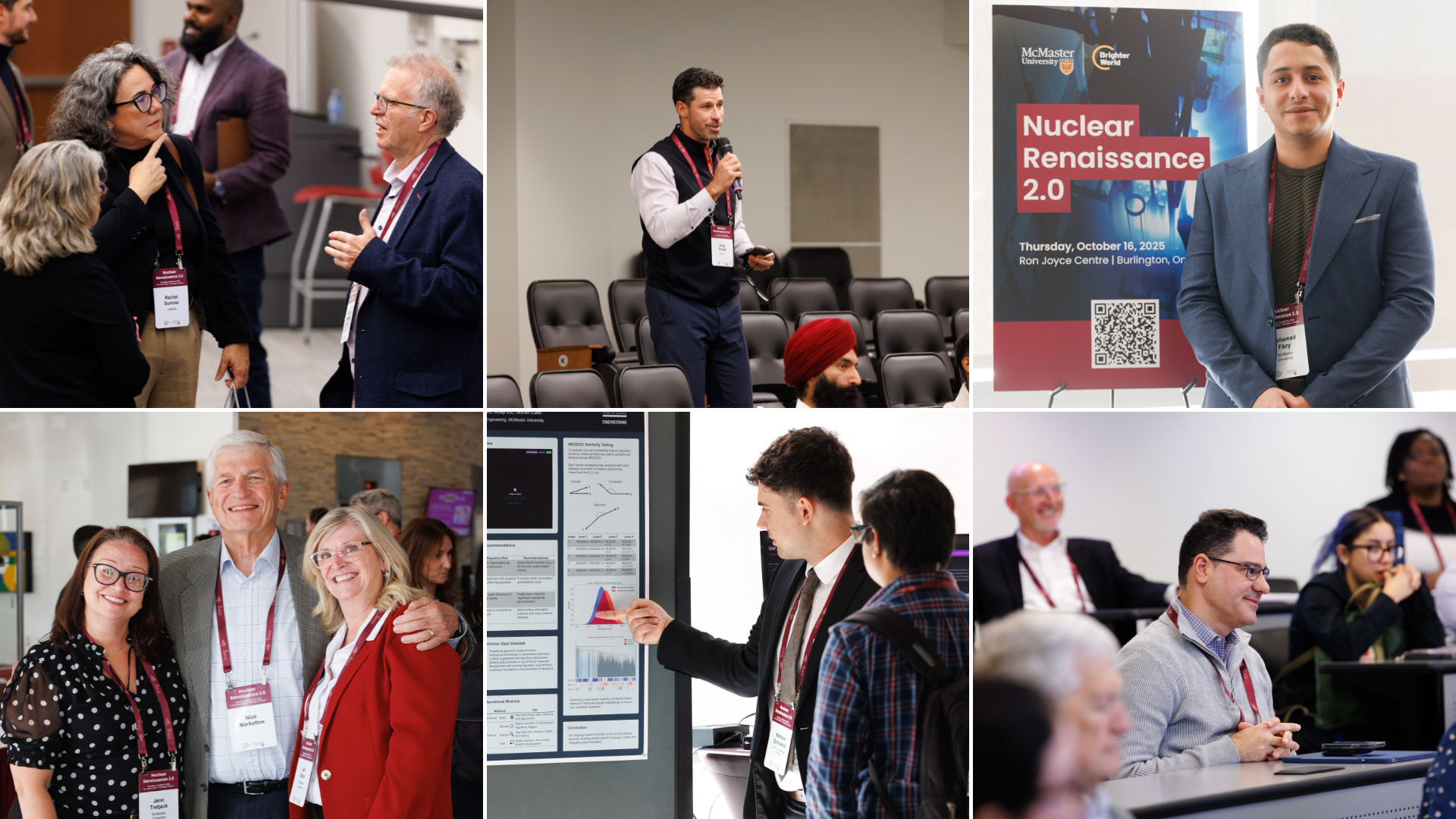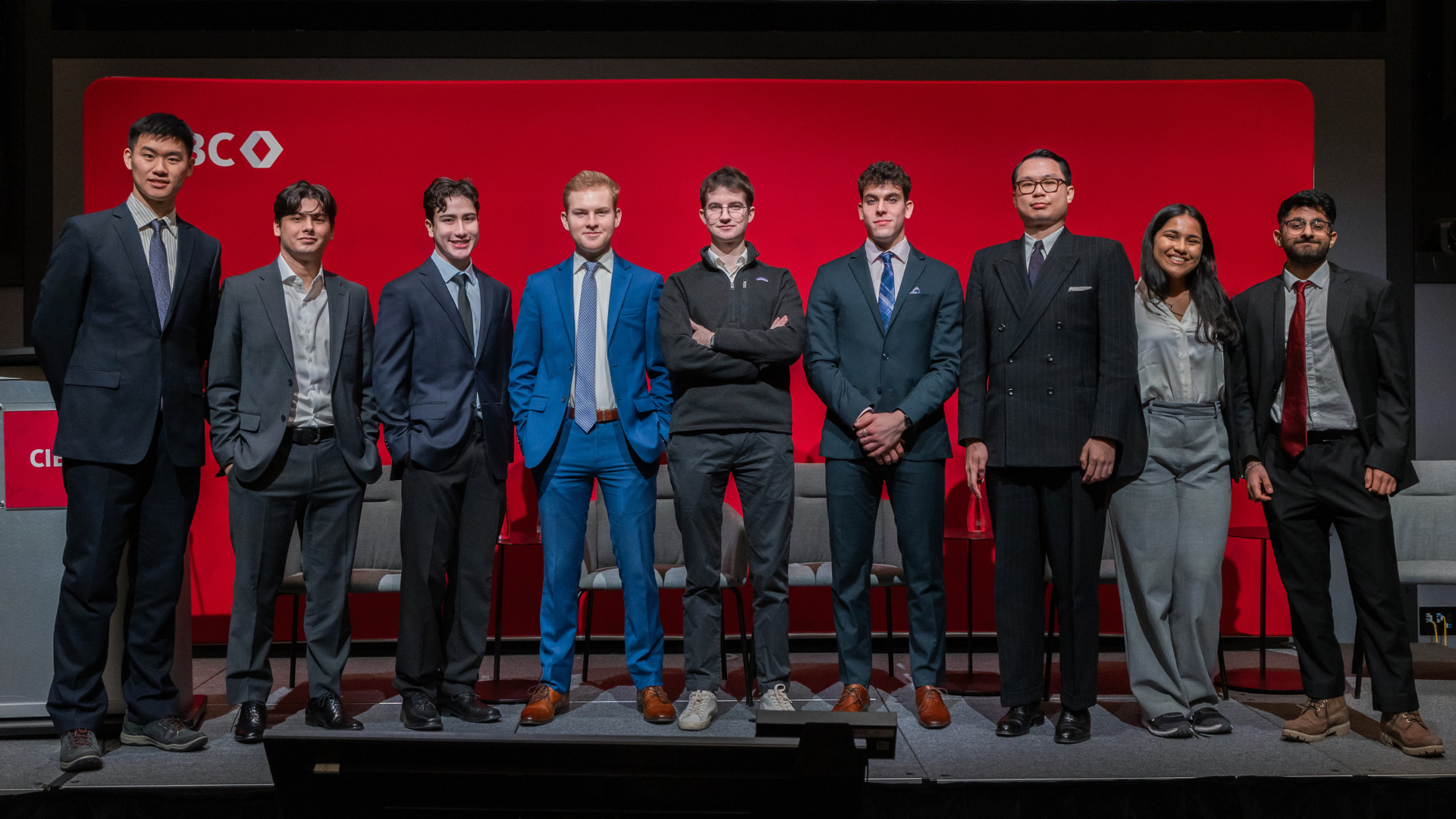Turning heat into opportunity: Siemens and DeGroote MBA students drive innovation in AI data centres
November 3, 2025 ·
Contributed by: Angelica Babiera
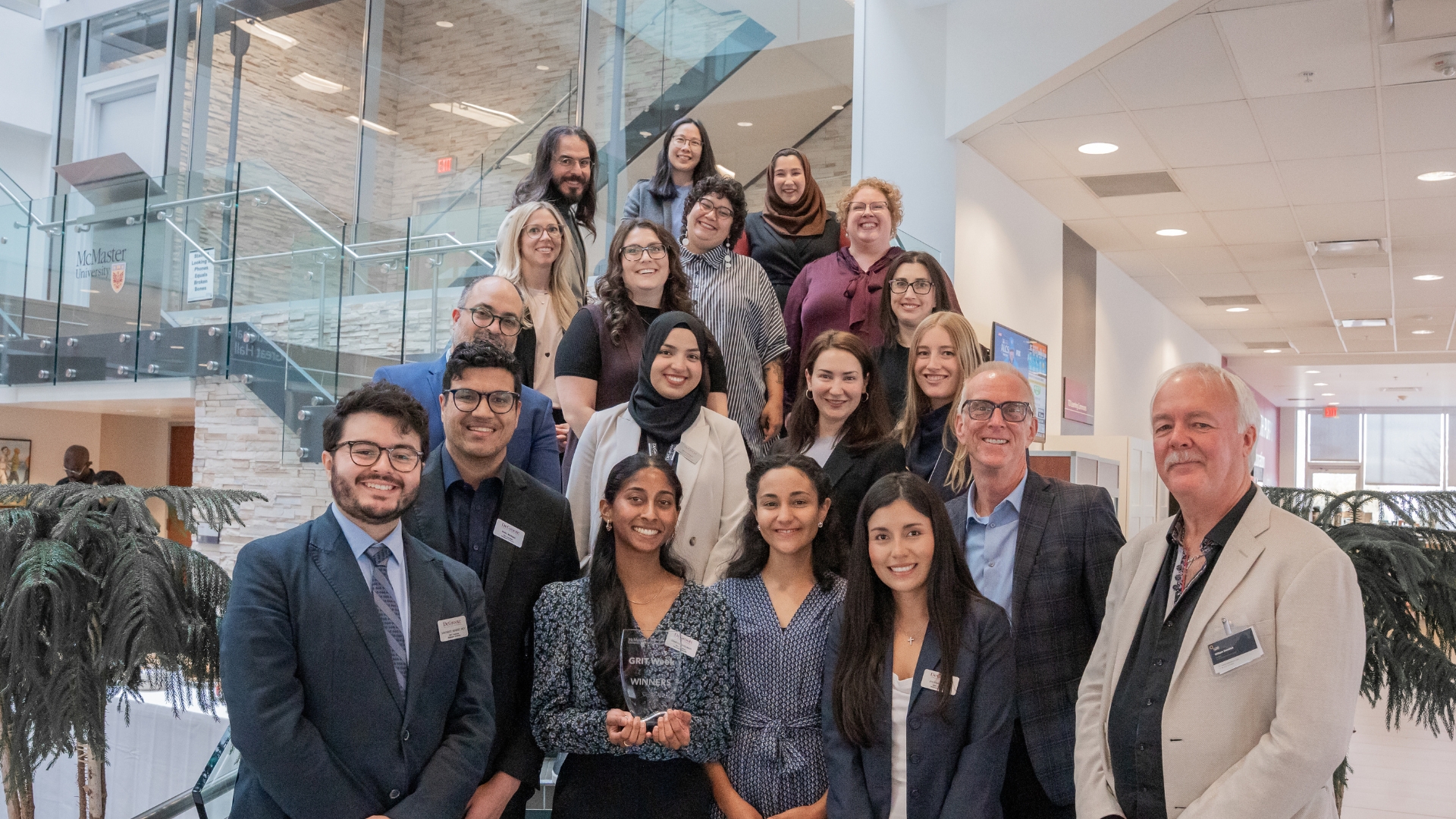
This fall, the first-year MBA cohort gathered for GRIT Week (Generating Resilient Integrative Thinkers), which is an intense, four-day learning experience designed to challenge and inspire. From October 14 to 17, the Ron Joyce Centre in Burlington became the lab where theory, teamwork and challenge collided—and it all centered on a bold partnership with a global leader, Siemens.
The case? How to capture waste heat from Artificial Intelligence (AI) data-centres, which are high-powered, liquid-cooled, Graphics Processing Unit (GPU)-driven systems, and turn that by-product into sustainable business value.

With AI demand projected to double globally by 2030, which is equal to almost seven times Ontario’s current annual power use, the stakes are high. Ontario will see a significant amount of that growth due to its population, developed internet infrastructure and clean energy.
Liquid cooling of GPU clusters is changing the game, allowing warm water to do the heavy lifting rather than energy-intensive chillers. This type of cooling opens doors such as district heating, greenhouses, industrial drying, aquaculture and even carbon capture.

While the challenge is global, Canada is uniquely positioned to lead in this space—a point Bernie Oegema, Director of Data Centres at Siemens Canada, emphasizes.
“Canada’s environment is very conducive to data centres in general because we have stable grids that are generally low carbon. Our grids and internet infrastructure are strong, and our climate is cooler. Most data centres are typically located in the U.S.—in the southwest and southeast—where cooling energy consumption is much higher and the carbon impact of using electricity from high-carbon emitting grids is much worse for the environment.”
For Siemens Canada, this moment represents both an opportunity and a responsibility: to show how sustainable energy practices can make next-generation data centres more efficient and environmentally responsible, while engaging DeGroote students in that real challenge.

As a result, students began to think about their own solutions. Some envisioned waste heat powering hotels, supporting local food centres in Hamilton and Burlington, or warming Ontario’s greenhouses to sustain year-round growth and reduce energy demand.
Through it all, students practiced resilience (adapting to evolving information and constraints), integrative thinking (bringing finance, marketing and data together) and community-led insight (because heat-recovery is about people, places and purpose, not just tech) in a three-minute pitch competition.

“One of the key objectives of GRIT Week is to help build resiliency in our MBA students. Through this partnership between DeGroote and Siemens, we aimed to strengthen that resiliency by engaging students in a project that required novel and creative solutions, repurposing heat from data centres. This concept is still relatively new globally,” Behrouz Bakhtiari, Director of the MBA Programs, Operations Management.
“At the same time, it addresses a challenge that will become increasingly critical as more data centres are built to meet the growing demand for computing power driven by AI. I’m proud that our students engaged in experiential learning by tackling this complex issue and delivered innovative solutions despite working with incomplete information.”
Building on that, Sarah King, Manager of Academic Experiential Education, emphasized GRIT Week’s broader role in DeGroote’s experiential learning vision; that the school’s commitment to the power and potential of problem-based learning is to inspire creative, thoughtful and resilient thinking in students:
“Through activities like this, DeGroote is providing our students with the skills and the mindsets they need to thrive and find their future opportunities in an increasingly complex world,” she says.

As for Siemens Canada, the payoff is fresh insights, bold ideas and the next generation of integrative thinkers ready to tackle the grand challenges of sustainability, business and technology.
“GRIT Week gives us a much broader view, and it opens a lot of ideas for innovation. It’s an opportunity for us to share our knowledge with the new students while hopefully giving us some very interesting outputs from this initiative,” says Oegema.
“MBA students have a unique value in that they are often very well-rounded because they already have a bachelor’s degree. They already have lots of different experiences and then they get to put the business layer on top of it.”

What’s unique about this industry partnership is the depth of the collaboration. Siemens Canada is not just a guest partner for one week; they’re deeply engaged with DeGroote through custom executive programs and are already in talks around the McLean Centre for Collaborative Discovery (MCCD) for more collaborations.
“My biggest takeaway was how a bunch of “strangers” came together and pushed through the week. We differ in skillset, experience, educational background…yet, we supported each other, had open communication, distributed tasks effectively, celebrated our wins, celebrated the wins of others, and became comfortable with ambiguity, just as GRIT Week sought to achieve,” says Ajibola Ogunbiyi, second-year MBA student, on a LinkedIn post.
In the end, GRIT Week wasn’t just a week; it was a launchpad to turn heat into opportunity, challenges into learnings and students into leaders who don’t wait for the future. At DeGroote, you won’t just study business; you’ll do business.



